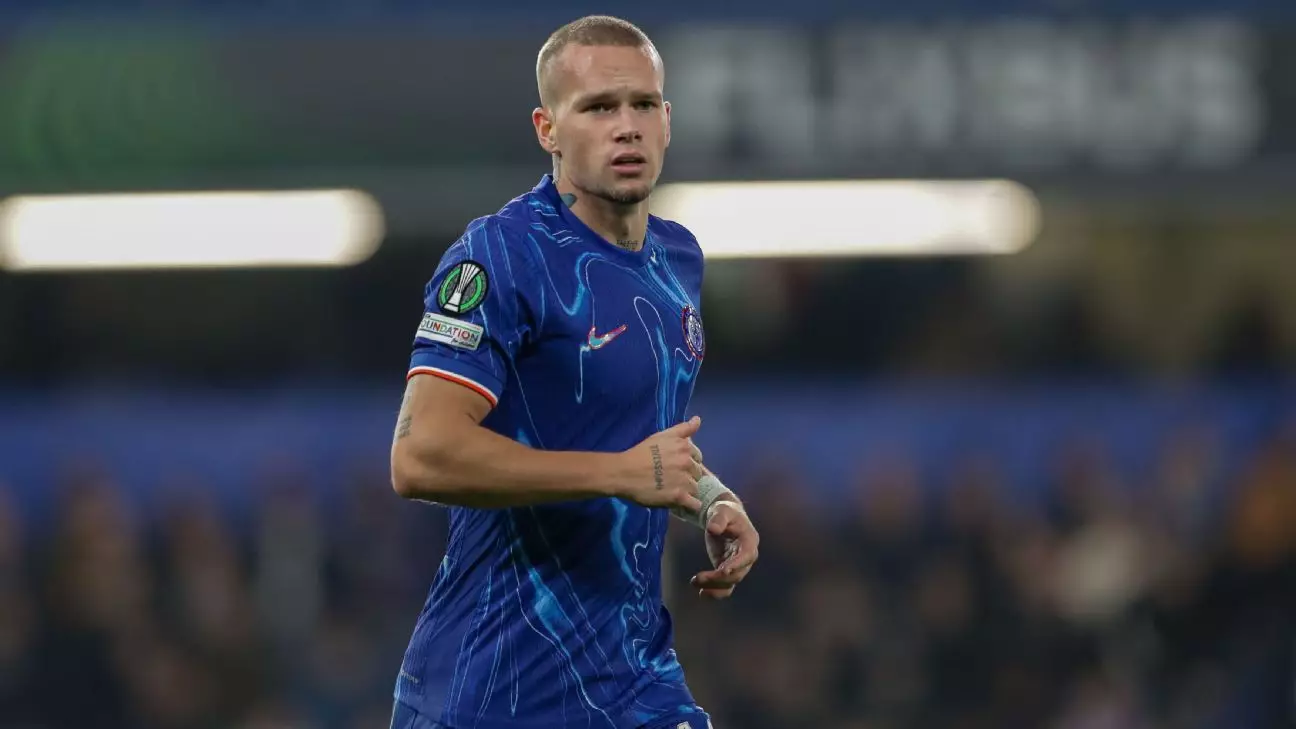The world of professional football is often swept up in controversies that can swiftly alter the course of a player’s career. Recently, Chelsea winger Mykhailo Mudryk found himself at the center of such a storm following revelations of a positive drugs test. The implications of this incident stretch far beyond the confines of the pitch, raising questions about player conduct, the integrity of sporting regulations, and the support systems in place for athletes.
At just 23 years old, Mudryk expressed his shock and dismay upon receiving news from the Football Association (FA) regarding a positive result from a urine sample he provided at the end of October. According to reports from Ukraine, an analysis of this sample identified a prohibited substance, yet results for the “B” sample, which could confirm or disprove the findings, are still pending. In an Instagram post, Mudryk stated, “This has come as a complete shock as I have never knowingly used any banned substances.” His insistence on innocence reflects a common reaction among athletes faced with similar allegations, as they often feel the weight of public scrutiny despite their claims of compliance with regulations.
The emotional toll on Mudryk is palpable. The threat of a lengthy suspension—potentially lasting up to four years—looms large. While the FA is typically confidential about ongoing investigations, any confirmation of rule-breaking could seriously disrupt his career trajectory. The pivotal question is: how can players protect themselves against unintentional violations of doping regulations?
Chelsea Football Club and the FA are also navigating treacherous waters in the wake of Mudryk’s predicament. Chelsea has reinforced its support for both the FA’s testing protocol and the player’s insistence on his innocence. In an official statement, the club expressed its commitment to accountability and transparency, emphasizing that the club and Mudryk will collaborate with appropriate authorities to uncover the cause of this positive test result. This situation thrusts the club into a delicate position, as they must balance their public relations strategies while supporting a player who claims to be a victim of circumstance.
The FA’s governance and testing procedures are designed to maintain fairness in competition. However, this case illustrates the unpredictable nature of doping control in sports. Regulations stipulate provisional suspensions upon notification of positive results, which raises concerns about the repercussions players face even before investigations are complete. Mudryk, having entered the Premier League amid high expectations and a hefty transfer fee that could amount to £88 million, is now at risk of being sidelined without conclusive evidence of wrongdoing.
As the football community awaits the results of Mudryk’s “B” sample test, the broader implications of this case cannot be underestimated. If the second sample corroborates the initial findings, Mudryk’s reputation could suffer irreparable damage, and his career prospects may falter. Conversely, a negative result could reinforce the importance of thorough investigations and a player’s right to defend their name against unintentional errors.
Moreover, the case raises crucial discussions about drug testing protocols and their impact on athletes’ mental health. The fear of false accusations, paired with the constant pressure to perform at elite levels, may lead to devastating psychological consequences for athletes who find themselves entangled in such situations. It could highlight the need for enhanced education surrounding nutritional supplements and medications, ensuring that players understand potential pitfalls.
Mykhailo Mudryk’s positive drugs test case serves as a significant reminder of the complexities athletes face both on and off the field. It underscores the necessity for better education on regulations, a more supportive approach from clubs, and improved transparency within governing bodies. The incident has the potential to initiate discussions not only about Mudryk’s situation but also about the overarching framework of anti-doping in football. As fans, clubs, and fellow players hold their breath, the outcome of this alarming scenario will undoubtedly resonate in the world of sport long after the dust settles.

